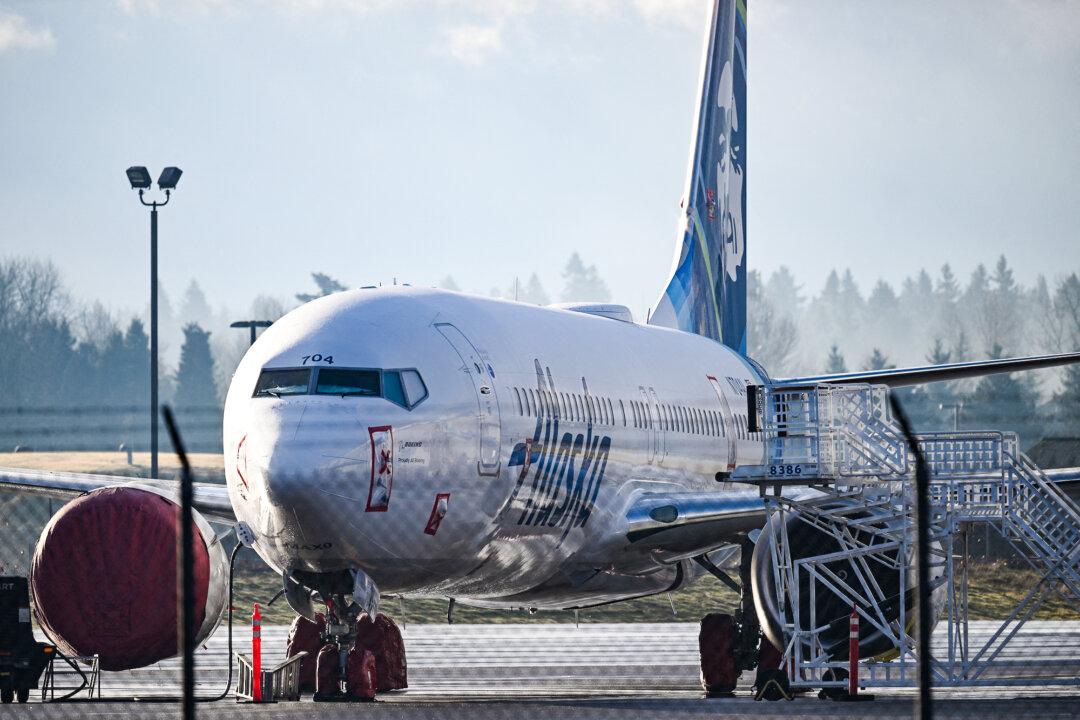Boeing is being sanctioned by federal investigators for sharing information related to an investigation into how a door plug blew off a 737 Max passenger jet mid-flight in January.
The National Transportation Safety Board (NTSB) on June 27 accused Boeing of violating the agency’s investigative regulations, as well as a signed agreement, by providing nonpublic investigative information to the media. It also said the planemaker speculated about possible causes of the Jan. 5 door plug incident while an investigation was underway.





